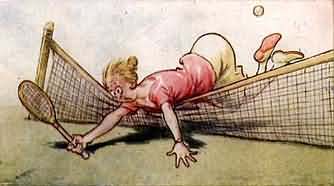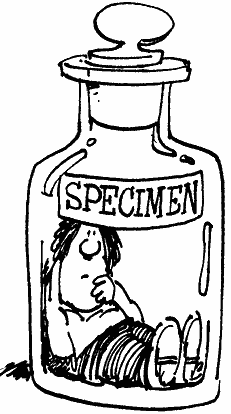Scientific Misconduct Blog Memory Hole: Events of October the 29th
Quote of the day
It is sayd there be a rage of mountaynes in the Easte, on one syde of the which certayn conducts are immorall, yet on the other syde they are holden in good esteeme; wherebye the mountayneer is much conveenyenced, for it is given to him to goe downe eyther way and act as it shall suite his moode, withouten offence.Gooke's Meditations
15 years ago today: Lead studies and the Needleman case
On 29 October 1992 after a decade of debate two new studies of lead levels and IQ in children were reported. One by Baghurst showed impairment in neurological development as lead rose from 10 to 30ug/dL. Another by Bellinger showed significant IQ deficits over a similar range. Previous studies had been challenged repeatedly by industry.Other studies had not properly controlled for confounding variables (such as maternal IQ) and had therefore been "rejected". Psychologists Claire Emhart and Sandra Scarr hired by the owners of a lead smelter had accused Herbert Needleman of research misconduct following his landmark - but flawed - 1979 study in NEJM. Needleman had in turn (wrongly in my view) refused skeptics access to his raw data. Industry have every right to query scientific findings (just as industry has an obligation to reveal raw data supporting scientific statements).
Source: "Study Documents Lead-Exposure Damage in Middle-Class Children," New York Times, 29 Oct 1992

14 years ago today: A missed ball in scientific misconduct
On 29 October 1993 the journal Science discussed the attempts to frustrate the efforts of the US Office for Research Integrity (ORI) to bring fraudsters to book. The appeals process were insisting that the ORI must prove a) intent to deceive, b) that the false statements were important to the thrust of research claims.Herein lies a large problem. There are many real-world examples of serious scientific misconduct that make this appear ludicrous. It also presupposes that scientific misconduct must involve the making of false statements. This attempt at narrow redefinition may have had much to do with attempts to protect Gallo and Baltimore at the time. None of this goes back to the purpose of defining misconduct in the first place.
Murder (intentional killing particularly with premeditation) is a crime. So is carrying a loaded gun on an airplane. There is no proof of intent to kill, but there is intent to breach an agreed contract. That is how society protects itself. Here we have lawyers saying that the contract of science is irrelevant to them.
It is sayd there be a raunge of mountaynes in the Easte, on one syde of the which certayn conducts are immorall, yet on the other syde they are holden in good esteeme; wherebye the mountayneer is much conveenyenced, for it is given to him to goe downe eyther way and act as it shall suite his moode, withouten offence.
Gooke's Meditations
Source: "Another Blow for ORI" Science 262 (29 October 1993), p343

13 years ago today: More on the scientific failures in NIH fialuridine case
On 29 October 1994 it was revealed that knowledge of previous hidden studies would have prevented the deaths of patients that occurred in a hepatitis drug trial carried out by Dr. Jay Hoofnagle at the NIH (see Memory hole 23 Oct).In brief, a clinical trial ended in catastrophe - with the iatrogenic deaths of five participants. The drug was fialuridine, to treat hepatitis B. 5 of the 15 patients who took the drug died, and two more required liver transplantation.
There are comparisons with the regulatory and scientific disaster involving TGN1412 in the UK in that multiple patients were exposed to an "unknown".
Dr. Jay Hoofnagle, the principal scientist in the NIH study had stated that he thought some patients' symptoms were associated with the underlying illnesses, until the deaths began to occur.
Now it is revealed that dangerous side effects in at least two other studies, and four deaths in earlier experiments were not reported to the F.D.A. The FDA stated that "overview of the data, in which deaths and serious adverse experiences were analyzed cumulatively, was not produced and thus was not available" to scientists carrying out the study or to the Government.
Nothing learned in 13 years.
Patients don't matter much in all of this.
Source: "Speed of F.D.A. Action on Rules for Drug Tests is Questioned" New York Times, 29 Oct 1994
8 years ago today: The decline of Dr Koop
On 29 October 1999 a further scandal was revealed involving Dr. C. Everett Koop, the former US Surgeon General.In spring 1997 Koop made a telephone call to Dr. Linda Rosenstock, director of the National Institute for Occupational Safety and Health. "The agency was about the warn health workers that latex gloves could cause serious, even life- threatening allergic reactions. Dr. Koop told her that the language was "way overstated" and could cause health workers to abandon gloves that could protect them against infection"
Then Koop testified in the House on March 25 before the oversight and investigations subcommittee of the Committee on Education and the Work Force. Dr. Koop told the panel that the hazards being linked to the gloves by scientists and other health authorities were exaggerated. "Borderline hysteria," he called them.
However now it is revealed that Koop had received substantial sums of money under a four-year, $1 million contract he signed in 1994 with a leading manufacturer of the latex gloves, a relationship he did not disclose to Dr. Rosenstock or the subcommittee.
"What this long admired and respective man has done in taking money from a glove manufacturer and than speaking out on its behalf is wrong," said Susan Wilburn, senior specialist in occupational safety and health for the American Nurses Association. "Niosh studies show that 10 percent of workers regularly exposed to the gloves and 17 percent with heavy exposure have developed allergies".
"Dr. Koop has long been one of the nation's most trusted health experts, a reputation he gained as Surgeon General in the 1980's".
"According to filings with the Securities and Exchange Commission, the glove company contract called for Dr. Koop to deliver four speeches a year on health and nutrition. He gave the company the right to use his "name, picture, speeches, and biographical information" and agreed to serve as a company adviser. He also agreed not to endorse products of competitors, and to submit his speeches for editing"
Dr. Koop's testimony in March was still being cited in state legislatures as reasons to delay action on the gloves, even though "it was based on a study that was never done."
Source: Koop Criticized for Role in Warning on Hospital Gloves NYT Oct29, 1999
6 years ago today: The EU Clinical Trial directive and scientific fraud
On 29 October 2001 the BBC discussed the threat to research caused by the new EU clinical trial directive."The future of clinical trials in the UK will be jeopardised by a new EU directive, according to research experts". "it will radically increase how much it costs to carry out academic work, or many drug trials". "it will require a huge dossier of information to be compiled by researchers about virtually every aspect of the trial".
"another aim of the directive - to make research fraud more difficult - will fail because determined cheats would still succeed." "There's no evidence that doing this would help the situation"
Not a word about who those "determined cheats" are. Not a word about the beneficiaries of the confusion. The losers are small innovative biotech companies and innovative academics. The control of clinical "findings" are driven away from clinicians and into the hands of those who have incentives to cheat and who have done so repeatedly. Scientific fraud is neatly hidden beneath a layer of impenetrable and expensive red tape.
There is no integrity in any of this. Nor was this ever the intent.
Source: BBC News, Red-tape 'disaster' for medical research 29 Oct 2001
5 years ago today: Neurontin documents exposed
On 29 October 2002 the contents of internal Warner-Lambert documents unsealed in a neurontin lawsuit were revealed.Instead of conducting clinical trials to test the safety and efficacy of Neurontin (gabapentin) for the conditions it promoted, Warner-Lambert (now owned by Pfizer) spent money "educating" doctors, encouraging them to prescribe the drug for unproven uses in patients with diabetes and bi-polar disorder.
Marketing executives at Warner-Lambert urged their superiors to promote the epilepsy drug Neurontin outside of the domain of science. In a memo, dated May 5, 1997, the marketing executives propose that Neurontin be promoted to treat pain in diabetic patients by creating education classes for doctors, and sponsoring a symposium with the American Diabetes Association. Another memorandum details how Warner-Lambert tracked prescriptions written by doctors after they attended dinner meetings paid for by the drug company at which Neurontin was discussed. The memo, dated June 26, 1995, said that in the Northeast, doctors attending the dinners wrote 70 percent more prescriptions for Neurontin than doctors who did not attend. In the memo, Warner-Lambert executives recommended against doing studies needed to get Neurontin approved to treat diabetic patients.
For detailed discussion of the neurontin documents and the consequences of these actions see "The Promotion of Gabapentin: An Analysis of Internal Industry Documents", Ann Int Med, 5 August 2006 145 :284-293.
The leadership of medicine remains mute. Patients no doubt suffered as as a consequence of thinking that decisions were being made on the basis of scientific evidence. Was anyone punished in any way?
On the same day the press reported that Pfizer had "agreed to pay $49 million to settle charges that a subsidiary defrauded the Medicaid program" over the cholesterol-lowering drug Lipitor.
Sources:
- Documents Show Effort to Promote Unproven Drug New York Times, Oct 29, 2002
- Pfizer to Pay $49 Million in Fraud Case New York Times, Oct 29, 2002
- The Promotion of Gabapentin: An Analysis of Internal Industry Documents, Ann Int Med, 5 August 2006 145 :284-293.
Odds and ends
- 78 years ago on 29 October 1929 the NY Stock Exchange crashed.
- 38 years ago on 29 October 1969 the first computer link was established on ARPANET, the precursor to the Internet.
- 9 years ago on 29 October 1998 in South Africa, the post apartheid "Truth and Reconciliation Commission" presents its report, which condemns both sides for committing atrocities.
- 3 years ago on 29 October 2004 the consumer group Public Citizen renewed its call a ban of the statin Crestor. It was felt that the rate of acute renal failure or renal insufficiency was far higher for Crestor than for all other statin drugs combined. The FDA disagreed with this assessment.
Earlier|Later|Main Page
1 comment:
The leadership of medicine remains mute. Patients no doubt suffered as as a consequence of thinking that decisions were being made on the basis of scientific evidence.
I agree with this.
Post a Comment